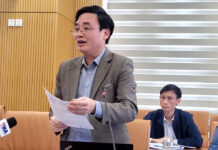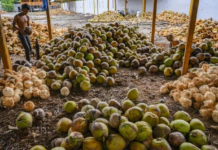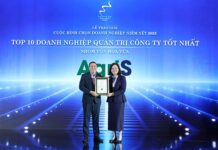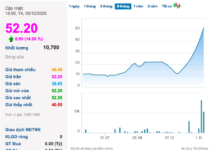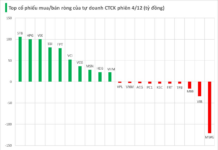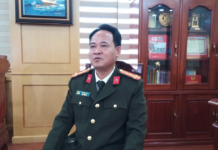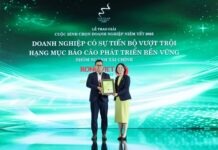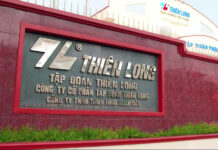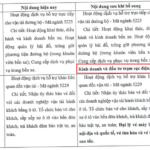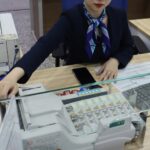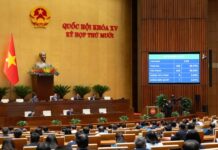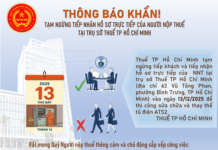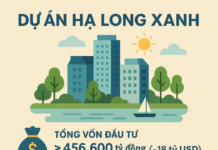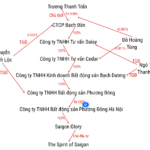As part of the Ho Chi Minh City (HCMC) leadership delegation’s U.S. visit, led by Chairman of the City People’s Committee Nguyen Van Duoc, the HCMC Department of Finance signed a Memorandum of Understanding (MOU) with the Nasdaq Stock Exchange in New York. This marks a pivotal step in the collaboration between HCMC and Nasdaq, aimed at advancing the development of the Vietnam International Financial Center in HCMC—a key goal for the city by 2030.
Striving for Early Operational Launch
Under the agreement, both parties will collaborate across five critical areas. Firstly, fostering strategic cooperation in governance, capacity development, and cross-listing between the two markets. Secondly, sharing expertise in establishing legal frameworks, operational mechanisms, risk management, and developing new financial products.
Nasdaq will also support HCMC in technology transfer and modern technical services to facilitate the establishment and operation of the international financial center. Additionally, both sides agreed to jointly train high-quality human resources in securities, bonds, derivatives, digital assets, and carbon credit markets, while enhancing connectivity among financial communities in Vietnam, the U.S., and globally.
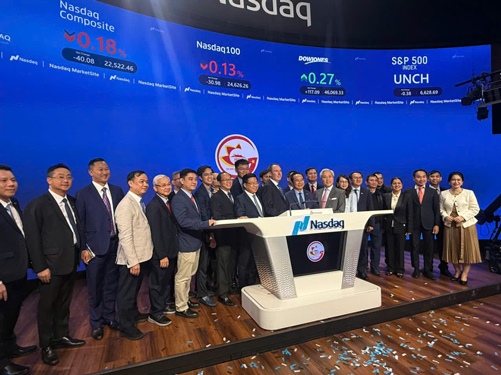
The HCMC leadership delegation during their U.S. visit last week |
Chairman Nguyen Van Duoc stated that post-MOU, both parties have much work ahead to ensure the International Financial Center in HCMC becomes operational by 2026.
Nasdaq, the world’s first and largest electronic stock exchange, hosts leading tech giants like Apple, Microsoft, Google, Amazon, Meta, Tesla, and Intel. As a global leader in securities trading, Nasdaq not only facilitates capital raising for businesses but also provides technology, data, and risk management solutions to financial markets worldwide. The partnership with Nasdaq is expected to help HCMC adopt international standards in capital market management, enhancing the operational capacity, transparency, and competitiveness of Vietnam’s financial system.
Meanwhile, HCMC has been tasked by Vietnam’s National Assembly with developing the International Financial Center, a strategic move to solidify its role as the nation’s economic powerhouse. The city also aims to become a regional hub for finance, industry, and innovation in Southeast Asia.
According to Phil Wright, Senior Director of Banking at HSBC Vietnam, Vietnam’s push to establish an international financial center will not only strengthen its capital market but also foster an innovative ecosystem, enhance competitiveness, and drive long-term growth.
“Lessons from leading financial centers show they are not just capital trading hubs but also catalysts for technological innovation, investment, and talent attraction. Achieving this requires a transparent legal framework, stable long-term policies, and strong public-private collaboration,” Wright noted.
Investing in Human Capital
Nguyen Truc Van, Director of the Center for Economic and Social Simulation and Forecast at the HCMC Institute for Development Studies, highlighted that the core focus of the International Financial Center project is to develop core financial services, attract a diverse business ecosystem, and position HCMC as a leading fintech destination in the region.
Van added that the center aims to attract investors in innovation, artificial intelligence, research and development (R&D), financial technology, big data, and high-impact industries.
Experts believe that for HCMC to rank among the top 50 global financial centers by 2035, it must overcome bottlenecks in legal transparency, digital infrastructure, financial-technology human resources, and international brand-building. Human capital is seen as the decisive factor for success.
To address this, during the HCMC leadership’s U.S. visit, the University of Economics Ho Chi Minh City (UEH) signed a strategic partnership with the New York Institute of Finance (NYIF), a globally renowned financial training institution. The agreement includes joint implementation of practical training programs in finance, investment, and risk management, aligned with international standards. The goal is to cultivate high-caliber financial experts, advisors, and executives to directly support the International Financial Center’s operations.
In its long-term strategy, the HCMC People’s Committee is implementing various initiatives to prepare internationally certified financial and investment professionals. UEH plays a central role in the advisory group for the financial center’s development and represents Vietnamese academia in high-level international collaborations. The partnership model among regulatory bodies, academia, and major financial institutions is expected to swiftly establish a competent expert workforce for the center’s future operations.
Phil Wright emphasized that investing in human capital is critical. “An international financial center cannot thrive without a skilled workforce. Vietnam must focus on education, training, and career development to enhance expertise in data analytics, cybersecurity, risk management, and financial engineering,” he said.
He also suggested that collaboration among universities, specialized agencies, and tech incubators will nurture a new generation of fintech leaders capable of driving the market in the digital age.
Wright cited examples like Dubai, which has successfully attracted global talent through special visas, enhancing its international competitiveness. “Vietnam could consider similar measures to ensure the HCMC International Financial Center becomes not only a financial hub but also an attractive destination for international talent,” he stressed.
|
Professor Tran Ngoc Anh of Indiana University believes the Vietnam International Financial Center in HCMC will serve as a hub for capital, data governance, trust, and innovation, positioning the city as the “financial heart” of the Southern megaregion. However, achieving this requires transparent legal frameworks, synchronized financial databases, and strengthened cooperation with global financial centers to learn from their operational models and digital entrepreneurship. |
Article and Photo: THAI PHUONG
– 05:23 21/10/2025
Surprising Twist in the October 20th Gift Market: Meat and Fish Emerge as Unique Gifts
The 20th of October gift market, celebrating Vietnamese Women’s Day, remains vibrant this year, yet notably absent are high-end products due to concerns of unsold inventory.
Ho Chi Minh City Partners with Nasdaq to Develop International Financial Hub
The Ho Chi Minh City Department of Finance has forged a strategic partnership with Nasdaq, the renowned US-based stock exchange, to accelerate the development of Vietnam’s International Financial Center in Ho Chi Minh City. This collaboration aims to bolster the city’s position as a global financial hub, fostering innovation, investment, and economic growth.
Expert Strategies to Stabilize the Real Estate Market
In addition to construction costs, land expenses play a significant role in determining both the cost and selling price of apartments, alongside profit expectations. When cost considerations are effectively addressed, the market can introduce more affordable products, meeting the substantial demand of urban residents.



